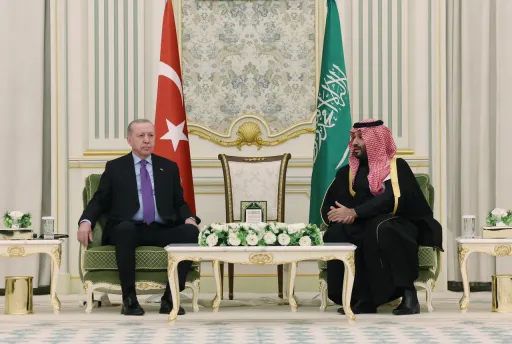A Paris court on Thursday sentenced former French president Nicolas Sarkozy to five years in prison after finding him guilty of criminal conspiracy in his trial into accusations that the late Libyan leader Muammar Gaddafi helped fund his victorious 2007 presidential run.
The court ordered that Sarkozy should be placed in custody at a later date, with prosecutors given one month to inform the former head of state when he should go to prison.
Even if Sarkozy appeals the verdict this measure will remain in force.
Sarkozy, who has always denied the charges, was accused of making a deal with Gaddafi to obtain campaign financing in exchange for supporting the then-isolated Libyan government on the international stage.
The judge, who acquitted Sarkozy of other charges, including corruption, said there was no proof that Sarkozy made such a deal with Gaddafi, nor that money that was sent from Libya reached Sarkozy's campaign coffers.
The judge also ordered Sarkozy to pay a 100,000-euro (about $117,000) fine.
Sarkozy’s trial is the latest in a string of legal troubles for the right-wing ex-leader, 70, who denies the charges.
Sarkozy, who was president from 2007 to 2012, has already been convicted in two separate cases and stripped of France's highest honour.
Judge Nathalie Gavarino said Sarkozy, as a serving minister and party leader at the time, had "allowed his close collaborators and political supporters over whom he had authority and who acted in his name", to approach the Libyan authorities "in order to obtain or attempt to obtain financial support".
The court's ruling, however, did not follow the conclusion of prosecutors that Sarkozy was the alleged beneficiary of the illegal campaign financing.
He was acquitted on a separate charge of embezzlement of Libyan public funds, passive corruption and illegal financing of an electoral campaign.
He was present in court for the verdict, accompanied by his model and musician wife, Carla Bruni-Sarkozy.
Two former close aides were also convicted. His former right-hand man, Claude Gueant, was found guilty of passive corruption and falsification, while former minister Brice Hortefeux was found guilty of criminal conspiracy.
Eric Woerth, Sarkozy's 2007 campaign treasurer, was acquitted.
In a dramatic coincidence, the judgment was issued by the Paris court two days after the death on Tuesday in Beirut of Franco-Lebanese businessman Ziad Takieddine, a key accuser of Sarkozy in the case.
Takieddine, 75, had claimed several times that he helped deliver up to five million euros ($6 million) in cash from Gaddafi to Sarkozy and the former president's chief of staff in 2006 and 2007.
He then retracted his claims before contradicting his own retraction, prompting the opening of another case against Sarkozy and also Bruni-Sarkozy, on suspicion of pressuring a witness.
Prosecutors argued that Sarkozy and his aides devised a pact with Gaddafi in 2005 to illegally fund Sarkozy's victorious presidential election bid two years later.
The prosecution's case is based on statements from seven former Libyan dignitaries, trips to Libya by Gueant and Hortefeux, financial transfers, and the notebooks of the former Libyan oil minister Shukri Ghanem, who was found drowned in the Danube river in Vienna in 2012.
Sarkozy has faced a litany of legal problems since his mandate and has been charged separately with corruption, bribery, influence-peddling and campaign finance infringements.
He was first convicted for graft and sentenced to a one-year jail term, which he served with an electronic tag for three months before being granted conditional release.
Separately, he received a one-year jail term - six months with another six months suspended - in the so-called "Bygmalion affair" for illegal campaign financing.
Sarkozy has gone to France's top appeals court to appeal that verdict.
He has faced repercussions beyond the courtroom, including losing his Legion of Honour —- France's highest distinction — following the graft conviction.
Legal woes aside, the man who styled himself as the "hyper-president" while in office still enjoys considerable influence and popularity on the right of French politics, and is known to regularly meet with President Emmanuel Macron.























